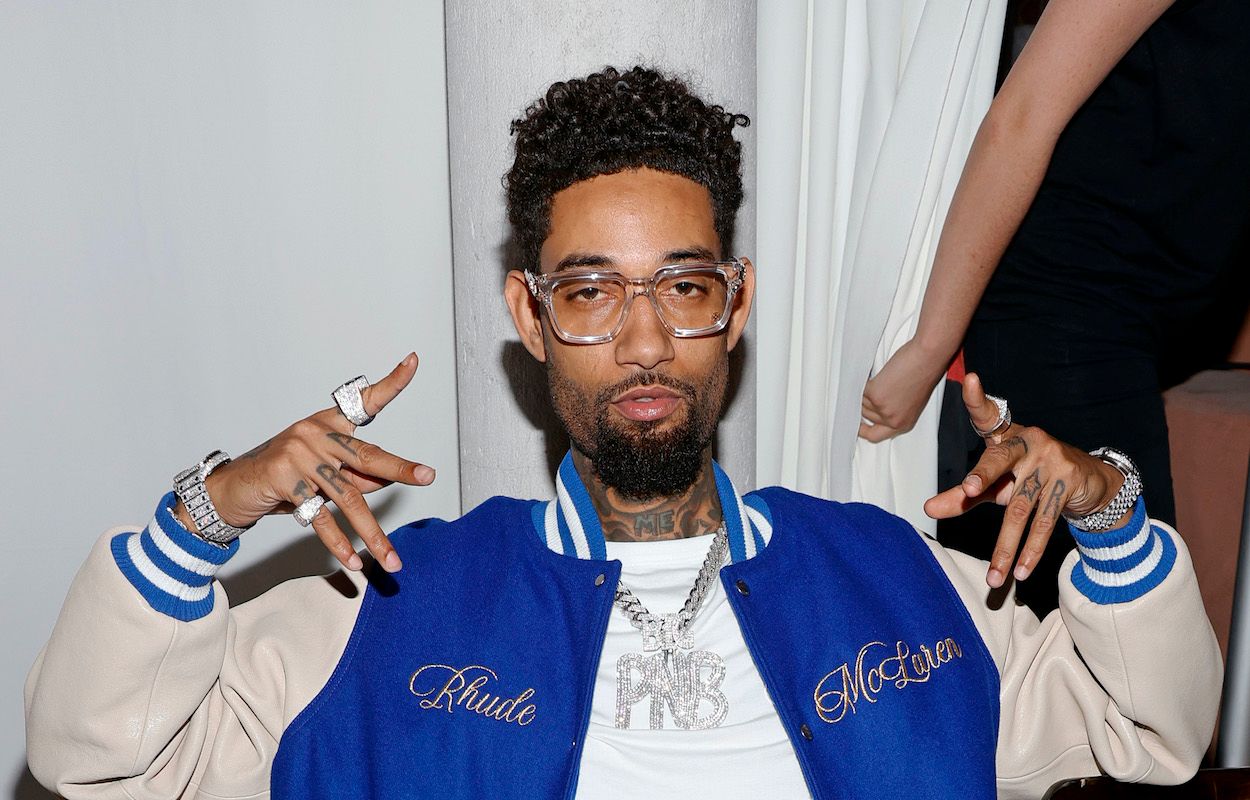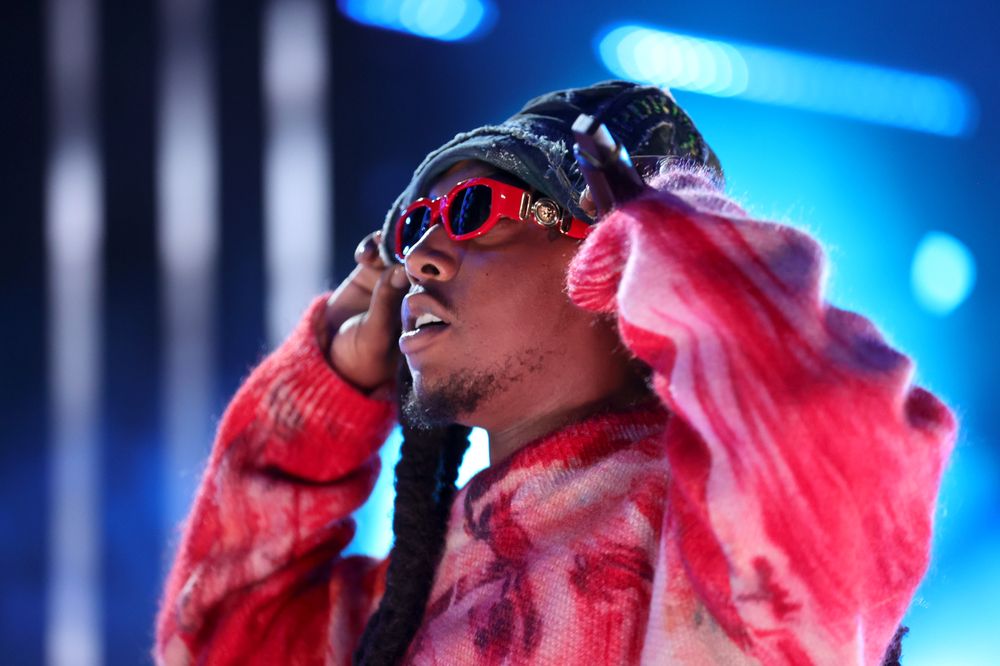Early in the morning on Nov. 1, the rapper Takeoff was shot dead at a bowling alley in Houston, Texas. He was most well-known as one of the three Migos, with an incredibly sharp pen and a staccato flow that forever altered the course of hip-hop history. He had just dropped an album with another third of Migos—his uncle, Quavo—called Only Built for Infinity Links in early October (released under the duo moniker Unc & Phew). He was just 28 years old.
There are a lot of rumors circulating about what led to Takeoff’s death, but for now, we don’t know for sure how or why the shooting occurred. What we do know is videos and photos have circulated showing Takeoff’s body in the immediate aftermath. TMZ, ever the source of salacious information, was the main culprit, publishing the footage where you can hear Quavo screaming grievously, as well as audio from a 911 dispatch call.
The proliferation of images of Black people in death is a clear indication of how little regard we’re given in our lives.
Tabloids like TMZ have traditionally had very little respect for the sanctity of life and privacy. Paparazzi will still shout at, chase, and stalk people of note—even after this kind of rabid and reckless behavior contributed to the poor emotional state and death of Princess Diana. If they’ll treat a white princess like this, just how much do you think they’ll respect Black men?
The proliferation of images of Black people in death is a clear indication of how little regard we’re given in our lives. How many times have you been subjected to watching someone’s life slip away on social media? As far as rappers go, videos of XXXTentacion and PnB Rock's last moments have spread online. Ditto for Nipsey Hussle. Los Angeles police officers took photos of the crash site where Kobe Bryant died and leaked and shared them, which ultimately cost the city $16 million. The images and videos of grisly deaths that entertainers face shouldn’t be for the public’s macabre appetite for consumption. They are entertainers, but to what end? Black men who play basketball or rap aren’t fully respected as human beings because, for one, they are Black men. But as entertainers, the public at large thinks they deserve to be the subject of their amusement at all costs, until the very end.
How the world selfishly indulges in the pain of Black people isn’t the only sinister action at work. We, as a Western culture, are addicted to violence. We also have a thirst for an all-gossip-is-good-gossip lifestyle and an unhealthy relationship with social media. This only heightens how likely it is for these images to get shared so flippantly. It seems like not enough of us have agreed on healthy or sympathetic boundaries, and with the ever-present specter of violence in America, perhaps we’ve been poisoned, desensitized, and conditioned to have a flimsy understanding of what is and isn’t acceptable. Everybody’s seen somebody die online, maybe multiple times. I’m not sure just how devastating the psychological toll this will take us through in the future, but I know for certain that it can’t be good.


